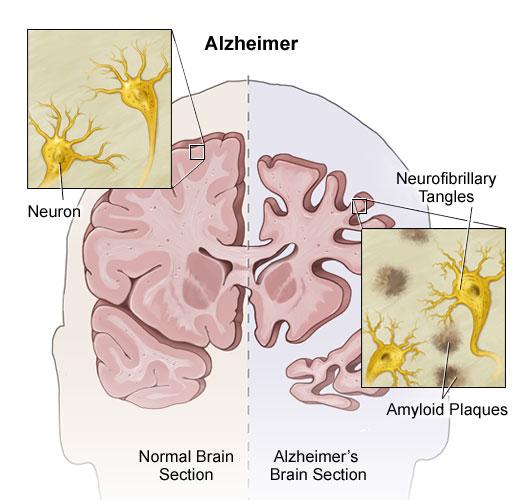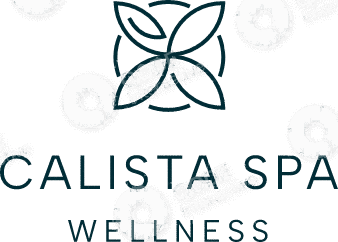Our Restorative Health Approach to Dementia
Real stories. Real impact.
What is Dementia?
Alzheimer’s and dementia involve the progressive loss of neurons and synapses, beginning in the hippocampus and spreading through the brain’s memory and reasoning centers. Beneath the visible shrinkage and plaques are deeper biochemical failures, including plasmalogen depletion, mitochondrial dysfunction, cholesterol transport breakdown, and chronic inflammation.
Our program addresses these root causes by restoring the brain’s biochemical and structural integrity, with a focus on membrane repair, energy metabolism, and neuroprotection. The goal is not just to slow decline, but to support functional recovery.
Watch: Understanding Alzheimer's & Dementia
In this episode of Health Matters, Dr. Goodenowe explores the biochemistry of dementia and Alzheimer’s disease.
How We Apply Restorative Health Principles in Dementia
Set Your Baseline
We begin by measuring what’s happening inside the body of an individual diagnosed with Dementia...
The BioMetrix™ BioScan comprehensively measures key biochemical systems. Key biochemical system dysfunctions associated with Dementia include:
- Plasmalogen levels (Omega-3 and Omega-9): Indicators of membrane integrity and neuronal health.
- Methylation markers: Assess one-carbon metabolism and epigenetic regulation.
- Oxidative stress biomarkers: To identify cellular stress contributing to neurodegeneration.
- Peroxisomal and mitochondrial function markers: Reveal early organelle dysfunction related to aging and neurodegeneration.
- Lipid transport and cholesterol metabolism: Often altered in cognitive decline.
- Inflammation markers: Chronic low-grade inflammation is a key feature of Alzheimer’s pathology.
The BioMetrix™ NeuroMRI technology uses the most advanced 3T MRI instrumentation. Nine proprietary sequence programs are utilized to measure all aspects of human brain structure and function. Key neurological systems measured by NeuroMRI that require special attention in Dementia include:
- Brain Volume Monitoring MRI allows us to assess total brain volume, which naturally declines with age. Loss of brain volume reflects lipid depletion and is strongly correlated with reduced longevity. By measuring changes over time, we can gauge the trajectory of structural aging.
- White Matter Quality We evaluate the integrity of white matter—the brain’s communication network—using specialized MRI metrics like fractional anisotropy (FA) and radial diffusivity (RD). These markers reflect how well myelin is wrapping the brain’s wiring, directly impacting cognitive clarity, memory, and function.
- Assessing Myelin Health Over Time Myelination continues into midlife but declines sharply with aging. Our imaging tracks this process and helps identify whether interventions are successfully protecting or restoring myelin density.
- Structural Regeneration Evidence In select cases, we’ve observed measurable regrowth of brain regions such as the hippocampus and occipital lobes. These structural changes align with increased plasmalogen levels and suggest the brain’s ability to regenerate when given the right biochemical support.
- Linking Structure to Function MRI results are interpreted in context with biochemical data (like plasmalogen levels), helping us understand not only how the brain is changing, but why. This approach emphasizes function over pathology—focusing on what the brain can do, not just what’s damaged.
Begin Your Restorative Health Journey
The BioNutrix™ Nutrition program comprehensively supplies the body with key biochemical intermediates, cofactors, and nutrients.
Key biochemical systems that require special support in Dementia include:
- Proprietary Plasmalogen precursor supplements
- Proprietary complex lipid nutrition including human optimized phosphatidylcholine
- Mitochondrial function and capacity support
- Inflammation resolving support
- And more…
A lifestyle plan is developed with you in mind. Every person has unique challenges and opportunities in their personal life. Restoring health is not a quick fix. It is a life-long endeavour. Building and optimizing a plan that you can follow for the rest of your life is critical to a successful and sustainable recovery path.
Monitor, Improve, and Perpetuate Your Health
This isn’t a one-time fix — it’s a process of continual improvement.
The Immorta™ self-directed personal research software is a comprehensive system for tracking your health data over time. Designed to support your long-term restorative and preventive health goals, Immorta serves as your personal database. It stores all of your lab results and assessments, while also allowing you to log your diet, exercise, medications, and any other relevant health information.
The Engage™ educational and community interaction software program is designed to help you connect, learn, and grow throughout your health journey.
Engage is your gateway to a broad database of informational content covering a wide range of health and technology topics. It also connects you with a community of individuals facing similar health challenges. We are stronger together — learning from one another, offering support, and finding inspiration through shared experience. If you want to run a 4-minute mile, you train with runners who have done it. Engage is what makes perpetual health perpetually fun and rewarding.
Our program is built around restoring core biological functions:
- Reducing neuroinflammation by addressing glial activation and oxidative stress.
- Supporting mitochondrial function to improve cellular energy and reduce reactive oxygen species (ROS).
- Restoring neurotransmitter balance and membrane integrity through targeted biochemical interventions.
- Rebuilding gray and white matter structure using plasmalogen precursors specific to the brain’s unique lipid composition.
- Tracking neurological restoration with MRI imaging, blood biomarker testing, and functional assessments.

Alzheimer’s disease causes widespread shrinkage of the brain, marked by the loss of neurons, the buildup of amyloid plaques, and the formation of neurofibrillary tangles. These changes disrupt communication between brain cells and contribute to progressive memory and cognitive decline.
What Our Alzheimer's & Dementia Program Looks Like:
Biochemical Assessments
Blood-Based Biomarker Testing (BioMetrix™ BioScan)
- Plasmalogen levels (Omega-3 and Omega-9): Indicators of membrane integrity and neuronal health.
- Methylation markers: Assess one-carbon metabolism and epigenetic regulation.
- Oxidative stress biomarkers: To identify cellular stress contributing to neurodegeneration.
- Peroxisomal and mitochondrial function markers: Reveal early organelle dysfunction related to aging and neurodegeneration.
- Lipid transport and cholesterol metabolism: Often altered in cognitive decline.
- Inflammation markers: Chronic low-grade inflammation is a key feature of Alzheimer’s pathology.
MRI Brain Imaging
- Brain Volume Monitoring MRI allows us to assess total brain volume, which naturally declines with age. Loss of brain volume reflects lipid depletion and is strongly correlated with reduced longevity. By measuring changes over time, we can gauge the trajectory of structural aging.
- White Matter Quality We evaluate the integrity of white matter—the brain’s communication network—using specialized MRI metrics like fractional anisotropy (FA) and radial diffusivity (RD). These markers reflect how well myelin is wrapping the brain’s wiring, directly impacting cognitive clarity, memory, and function.
- Assessing Myelin Health Over Time Myelination continues into midlife but declines sharply with aging. Our imaging tracks this process and helps identify whether interventions are successfully protecting or restoring myelin density.
- Structural Regeneration Evidence In select cases, we’ve observed measurable regrowth of brain regions such as the hippocampus and occipital lobes. These structural changes align with increased plasmalogen levels and suggest the brain’s ability to regenerate when given the right biochemical support.
- Linking Structure to Function MRI results are interpreted in context with biochemical data (like plasmalogen levels), helping us understand not only how the brain is changing, but why. This approach emphasizes function over pathology—focusing on what the brain can do, not just what’s damaged.
Restoration & Optimization of Biochemical and Physiological Health
- Plasmalogen Restoration: Plasmalogens are critical lipids that make up brain membranes and myelin. Low levels are strongly associated with cognitive decline and increased mortality. We use patented plasmalogen precursors to restore these levels:
- Omega-9 (Oleic Acid) for myelin maintenance
- Omega-3 (DHA) for synaptic health and cognition
These molecules bypass digestion and are rapidly absorbed into the bloodstream, helping to restore neurotransmitter function, maintain brain volume, and improve memory, focus, and mobility.
- Methylation & Homocysteine Support High homocysteine impairs methylation and contributes to tau tangles in the brain. We use B vitamins and creatine to support methyl transfer and lower homocysteine—improving both brain structure and resilience.
- Mitochondrial Support Cellular energy decline is a hallmark of aging and cognitive loss. Supplementing with mitochondrial support molecules improves ATP production and amplifies the effects of plasmalogen therapy.
- Essential Nutrients for Brain Health Our restoration strategy includes choline, carnitines, and cholesterol support—nutrients that are often missing from modern diets but are essential for brain repair and longevity.
- Data-Driven Personalization Our ProdromeScan blood test measures lipid levels, fatty acid composition, homocysteine, cholesterol, and more. These insights guide tailored interventions that reinforce the body’s natural healing capacity.
This is restorative chemistry in action—not just managing decline, but giving the body what it needs to rebuild.
As neurological function improves, the body often becomes more capable of engaging in movement and daily activity. While the core of our Alzheimer's and Dementia program focuses on biochemical restoration, we also support patients with tools and strategies to enhance physical mobility, strength, and mental resilience.
Supportive therapies may include:
- CVAC (Cyclic Variations in Adaptive Conditioning): promotes cellular efficiency and oxygen utilization
- KAATSU Bands: aid in muscle activation and vascular growth using controlled compression
- BEMER Therapy: improves microcirculation to support tissue health and recovery
- Movement-focused sessions: support posture, gait, balance, and functional mobility
- Cognitive rehabilitation and personal development sessions: help restore confidence, motivation, and mental clarity
These tools work in tandem with the body’s healing process, helping individuals regain independence and re-engage with life as their capacity improves.
Personalized Health Management Hub
Our secure, personalized digital platform, Immorta, is your central hub for everything related to your health journey through Perpetual Health. It’s where all of your assessments, protocols, reporting and health data are securely stored - in one place, always accessible.
Clients use Immorta to:
- View their lab results and reports, and protocol details
- Track changes over time in key biomarkers and functional metrics
- Access their full health history, including past assessments and updates
- Share results and progress with their Navigation Team, practitioners, or care partners
- Stay connected and informed at every stage of their program
Immorta helps you stay organized, informed, and in control of your health data - all in one place.
Education & Community Platform
Our private online platform, ENGAGE, is your learning and support space within the Perpetual Health program - designed to help you build understanding, connect with others, and take action based on the latest science.
It brings together individuals and caregivers navigating neurological conditions, complex health challenges, or longevity concerns - including ALS, dementia, Parkinson’s, MS, autism, and rare diseases - into a shared space for learning, reflection, and support.
Through ENGAGE, clients can:
- Explore key scientific insights behind the program, including the role of plasmalogens in brain and body function
- Learn at their own pace through clear, easy-to-understand content that grows over time
- Connect with a broader community of individuals navigating similar health journeys
- Stay informed with evolving materials shaped by ongoing research and clinical experience
ENGAGE is built to empower. Offering the tools, context, and connection needed to help you take meaningful steps toward long-term restoration.
Navigation Team & Support
Throughout your program, you’ll have access to our Navigation Team - a dedicated support team here to help you stay organized, informed, and connected.
The Navigation Team serves as your main point of contact for:
- Answering questions about your program
- Helping you understand what to expect at each stage
- Coordinating blood draws and report interpretation calls
- Organizing supplement protocol shipments
- Providing resources and relevant updates
- Connecting you to the right person if a deeper question comes up
While they are not medical providers, the Navigation Team plays an important role in making sure your experience is smooth, supported, and never confusing. You can reach out any time you need assistance or clarification.

Is This Program Right for You or Your Loved One?
This program is designed for individuals with Alzheimer's or dementia and the families or caregivers who support them, who are ready to pursue a more proactive path.
It may be a good fit if you or your loved one:
- Have been diagnosed with Alzheimer’s, early-onset dementia, or cognitive impairment
- Are seeking preventative care and longevity
- Have specific genetic predispositions (APOE4 genotype)
- Believe the brain can heal when given the right support
This is not a replacement for your current care – it’s a new layer of support for those who are ready to take action.
A detailed look at Perpetual Health Tools and Technologies
Below is an overview of some of the assessments, interventions, and supports we utilize to track, guide, and personalize each participant’s care.
| Tools and Technologies | |
|---|---|
| HEALTH ASSESSMENTS | |
| BioMetrix™ BioScan ℹ️ | ✔️ |
| BioMetrix™ NeuroMRI ℹ️ | ✔️ |
| InBody 770 Advanced Body Composition Machine ℹ️ | ✔️ |
| Livenpace Dynamic 24-Hour 12-Lead ECG Holter ℹ️ | ✔️ |
| Spirometry – Pulmonary Function Test ℹ️ | ✔️ |
| Balance Tracking System ℹ️ | ✔️ |
| Hearing Test ℹ️ | ✔️ |
| Eye Exam ℹ️ | ✔️ |
| Purdue Pegboard Test ℹ️ | ✔️ |
| Functional Reach Test (FRT) ℹ️ | ✔️ |
| Lafayette Hand Dynamometer ℹ️ | ✔️ |
| Mobility Testing ℹ️ | ✔️ |
| Vital Signs ℹ️ | ✔️ |
| Quality of Life Questionnaire ℹ️ | ✔️ |
| ADAS Cognitive Assessment ℹ️ | ✔️ |
| BIOCHEMICAL RESTORATION | |
| BioNutrix™ NeuroRestore Supplement Protocol ℹ️ | ✔️ |
| Reverse Osmosis Water ℹ️ | ✔️ |
| Molecular Hydrogen Water ℹ️ | ✔️ |
| PHYSIOLOGICAL RESTORATION | |
| Kaatsu Bands ℹ️ | ✔️ |
| BEMER Pads ℹ️ | ✔️ |
| VitalStim Therapy ℹ️ | ✔️ |
| TheraGrip ℹ️ | ✔️ |
| Cyclic Variations in Adaptive Conditioning (CVAC) ℹ️ | ✔️ |
| Functional Movement Sessions ℹ️ | ✔️ |
| PSYCHOLOGICAL RESTORATION | |
| ENGAGE Community & Education Platform ℹ️ | ✔️ |
| Mental Health Sessions ℹ️ | ✔️ |
| Community Gatherings & Outings ℹ️ | ✔️ | Navigational & Support Team ℹ️ | ✔️ |
Restorative Goals
The program is designed to restore lost cognitive function by addressing the biochemical drivers of Alzheimer’s and related dementias - including plasmalogen depletion, synaptic breakdown, oxidative stress, mitochondrial decline, and disrupted neurotransmitter activity. The goal is to support brain repair, enhance communication between neurons, and improve overall quality of life.
With consistent participation in the program, many clients have experienced meaningful improvements. These outcomes are possible, and they reflect the core goals of the restorative approach:
Improved Short-Term Memory
Return of Speech, Personality, and Cognitive Engagement
Reduction in Wandering and Repetitive Behaviors
Increased Verbal Responsiveness and Social Interaction
Improved Focus, Orientation, and Emotional Stability
Greater Independence and Reconnection with Family
Please note: Every individual’s experience is unique. While these improvements have been observed in some clients, results vary and cannot be guaranteed.
Take the Next Step Toward Restoring Health
To better understand your unique needs and provide the most relevant support, we ask that you share details specific to your condition or health goals. This information helps us determine the most appropriate program options and ensure you’re matched with the right resources from the start.

